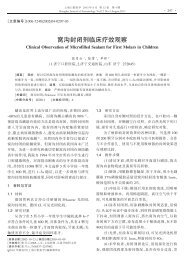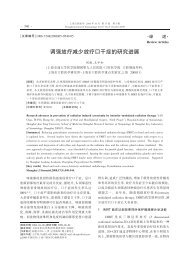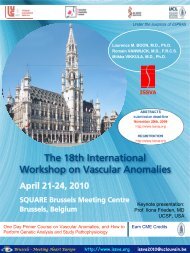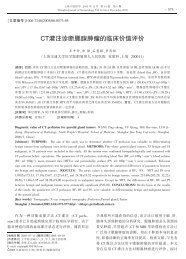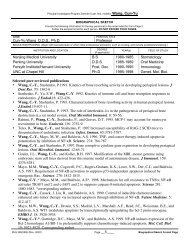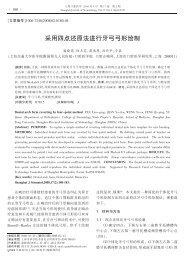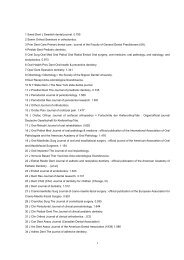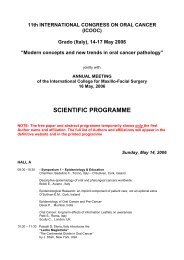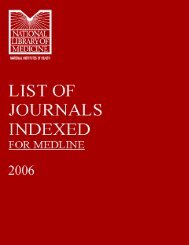core curriculum cleft lip/palate craniofacial anomalies
core curriculum cleft lip/palate craniofacial anomalies
core curriculum cleft lip/palate craniofacial anomalies
Create successful ePaper yourself
Turn your PDF publications into a flip-book with our unique Google optimized e-Paper software.
Core Curriculum for Cleft Palate and other Craniofacial Anomalies<br />
3. Family support groups such as groups of parents of children with <strong>cleft</strong>s or<br />
<strong>craniofacial</strong> <strong>anomalies</strong> can be very important to some parents in helping<br />
them cope with the birth of a child with a <strong>cleft</strong> or <strong>craniofacial</strong> anomaly. This<br />
can continue throughout childhood and adolescence.<br />
4. In children with high risk for developmental problems, early referral to an<br />
infant program may be beneficial.<br />
C. Infant<br />
1. Infant assessment includes developmental assessment of motor and language<br />
development, and social responsiveness.<br />
2. Continue to assess the family.<br />
D. Toddler<br />
1. Toddler assessment of self help skills, social development, and<br />
motor/language development.<br />
2. Continue to assess the family.<br />
E. Preschool Development<br />
1. Evaluate language and intellectual development.<br />
a. Expressive vs. Association language disorders are frequent and need<br />
to be carefully monitored.<br />
b. Early verbal IQ deficits are common and may affect overall IQ<br />
s<strong>core</strong>s.<br />
2. Early Social Interactions.<br />
a. Parent-child interactions.<br />
b. Overprotectiveness may be present in parents of children with facial<br />
deformities and this should be monitored and counseling provided<br />
when needed.<br />
3. Developmental Assessment.<br />
a. Need for early assessment due to high frequency of early delay.<br />
b. Validity problems of early assessment make it necessary to avoid rigid<br />
establishment of intellectual ability.<br />
4. During the preschool years delays in development frequently first manifest<br />
themselves. The psychologist and speech language pathologist are the team<br />
members most likely to diagnose and recommend specific interventions to<br />
maximize the patient’s potential development when delay is present.<br />
26<br />
© 2004 American Cleft Palate-Craniofacial Association




